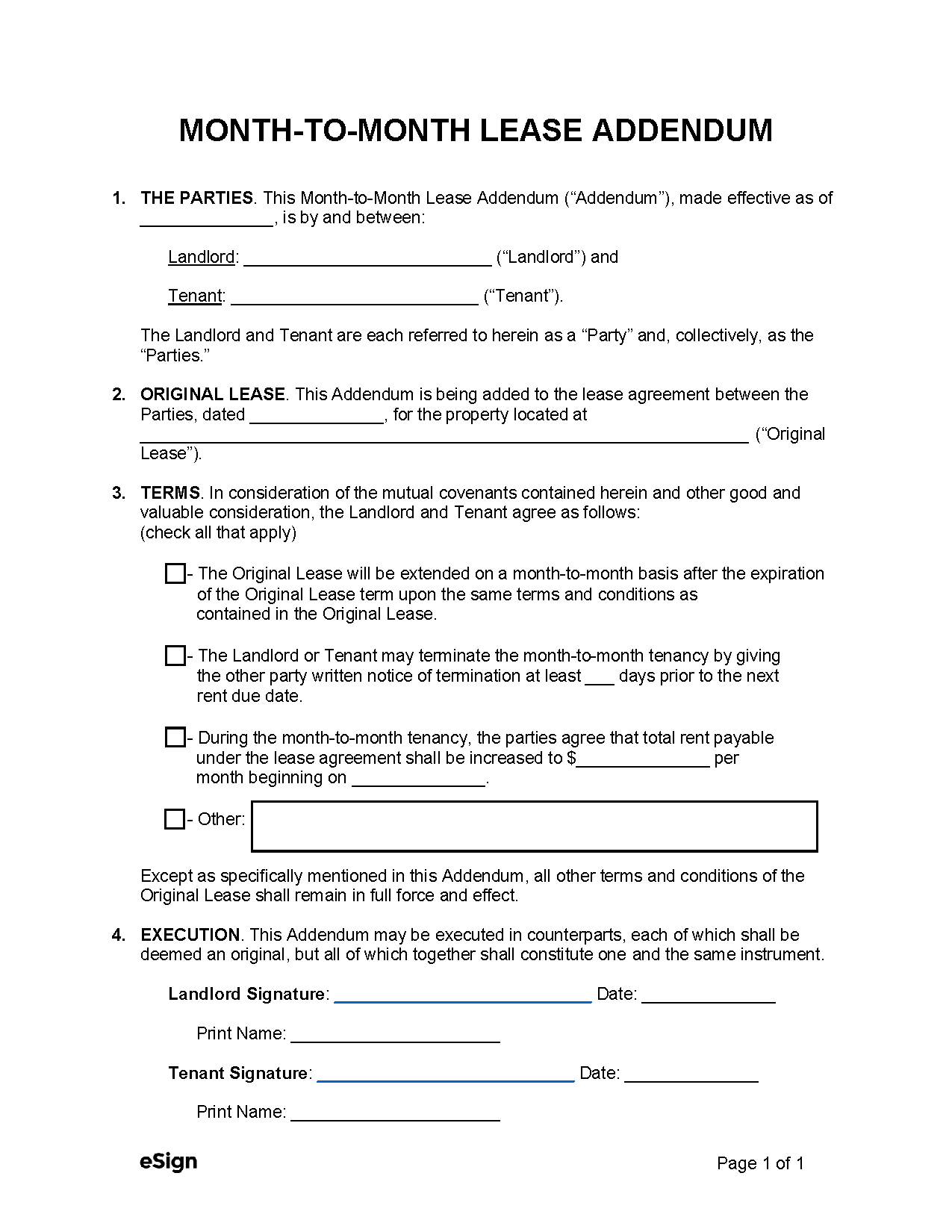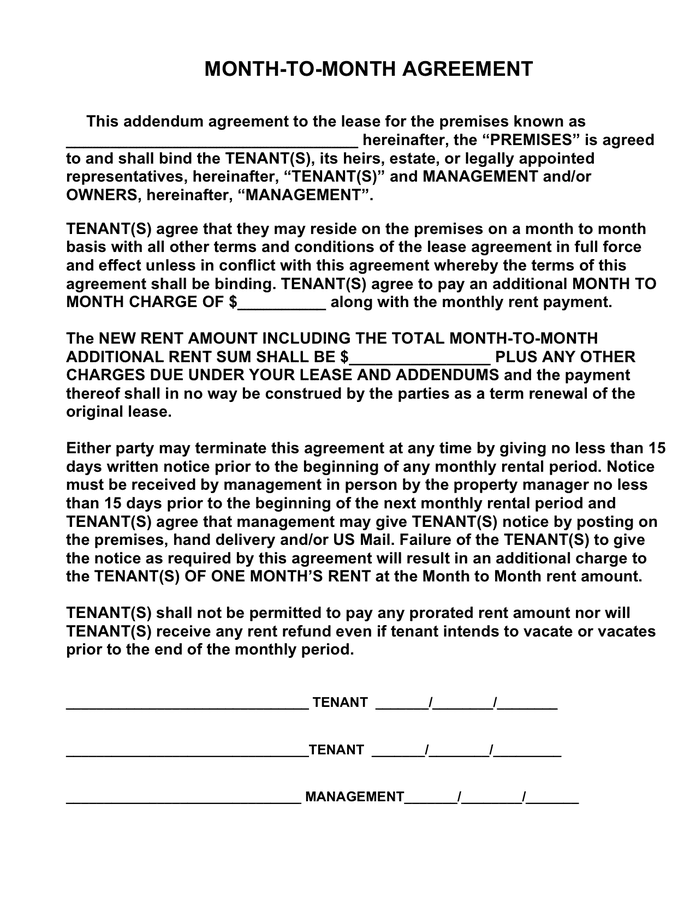Month-to-Month Tenant Rights: What Every Renter Should Know
Month-to-Month Tenant Rights: What Every Renter Should Know
Blog Article
Navigating the complexities of evictions under month to month renters rights may be challenging—whether you're a landlord or perhaps a tenant. Unlike fixed-term leases, month-to-month agreements provide flexibility for equally parties, but they also include special difficulties, especially when eviction is on the horizon. Here, we break up the important thing facets of handling evictions under these agreements, giving quality and actionable guidance for several events involved.
Understanding Month-to-Month Tenant Rights
Month-to-month tenancy, since the name implies, operates on a monthly schedule and generally renews automatically until one party provides recognize to terminate. Tenants and landlords alike are susceptible to the terms set out inside their hire contract along with applicable state and local laws.
Tenants who lease month-to-month have specific rights relying on the jurisdiction. These may include lease termination discover periods, defenses against retaliatory evictions, and access to specific tenant rights when disputes arise. On the change area, landlords maintain the ability to stop tenancy with correct notice and cause, if applicable.

To handle evictions correctly, it's necessary to familiarize yourself with the neighborhood laws governing tenant rights and landlord obligations in your area. This information forms the foundation of moving the procedure officially and ethically.
Legal Notice Requirements for Evictions
One of the very important aspects of evictions under month-to-month agreements is issuing or receiving a suitable discover to vacate. State and local regulations mandate how much detect a landlord must give before terminating a month-to-month tenancy.
For instance:
Standard Detect Times: Many claims involve landlords to provide 30 days' observe to end a month-to-month rental agreement. But, that period might expand to 60 days in certain jurisdictions.
Recognize for Nonpayment: If lease hasn't been paid, landlords usually need to matter a "spend or quit" discover, providing tenants a collection amount of time to pay outstanding dues or vacate the property.
No-Cause Terminations: Certain local laws might let landlords to stop month-to-month tenancies without cause but require lengthier recognize periods.
Failing to stick to correct appropriate discover guidelines can invalidate an eviction attempt and may end in penalties for the landlord. Tenants should also understand their rights under these discover demands to make certain their agreements are terminated lawfully.
Steps for Landlords to Conduct Legal Evictions
For landlords, evicting a tenant below a month-to-month lease needs strict conformity with both hire agreements and the law. Here's a step-by-step information:
Offer Correct Detect
Issue the official detect to vacate in line with regional regulations. Guarantee this includes the explanation for firing, if needed, and meets the mandatory observe period.
File Every thing
Keep complete files of rental obligations, lease violations, and any connection with the tenant. That documentation is likely to be important if the eviction proceeds to court.
Record an Eviction Lawsuit (If Necessary)
If the tenant will not vacate following correct detect, landlords could need to file an unlawful detainer or eviction case. This escalates the problem to judge, in which a judge could make a determination.
Follow Judge Instructions
Should the judge rule in favor of the landlord, an official observe or writ of possession is going to be offered to law enforcement to hold out the eviction. Landlords should avoid attempting to artificially take away the tenant themselves, as that violates the law.
Tenants'Recourse for Unlawful Evictions
Tenants experiencing eviction under month-to-month agreements have rights that protect them from unlawful displacement. In case a recognize appears unusual or retaliatory, tenants may:
Raise the Dilemma of Improper Discover
If the observe doesn't meet legitimate requirements (e.g., inadequate schedule or cloudy reasoning), tenants may increase that defense both directly with the landlord and in court.
Cite Retaliation Protections
Particular jurisdictions forbid evictions made in a reaction to tenants training legitimate rights (e.g., processing a problem about unsafe conditions).
Work with Tenant Advocacy Teams
Local companies and legal support communities can offer guidance to tenants on navigating disputes and seeking representation in judge proceedings.

Avoiding Eviction Disputes
Finally, landlords and tenants alike benefit from start and transparent communication throughout month-to-month agreements. Handling issues early, such as for example late payments or misunderstandings about terms, may frequently reduce an eviction from becoming necessary.
For landlords, ensuring conformity with state regulations and maintaining qualified, respectful conversation units a base for successful tenant relationships. Tenants, on one other hand, should recognition the terms of their agreements while outstanding informed about their legal protections.
Final Thoughts
Evictions below month-to-month tenant rights involve managing legitimate obligations and honest considerations. Both landlords and tenants must realize their roles, rights, and responsibilities to ensure the method is treated rather and lawfully. When in uncertainty, consult a appropriate skilled focusing on housing legislation to guide you through the process. Report this page